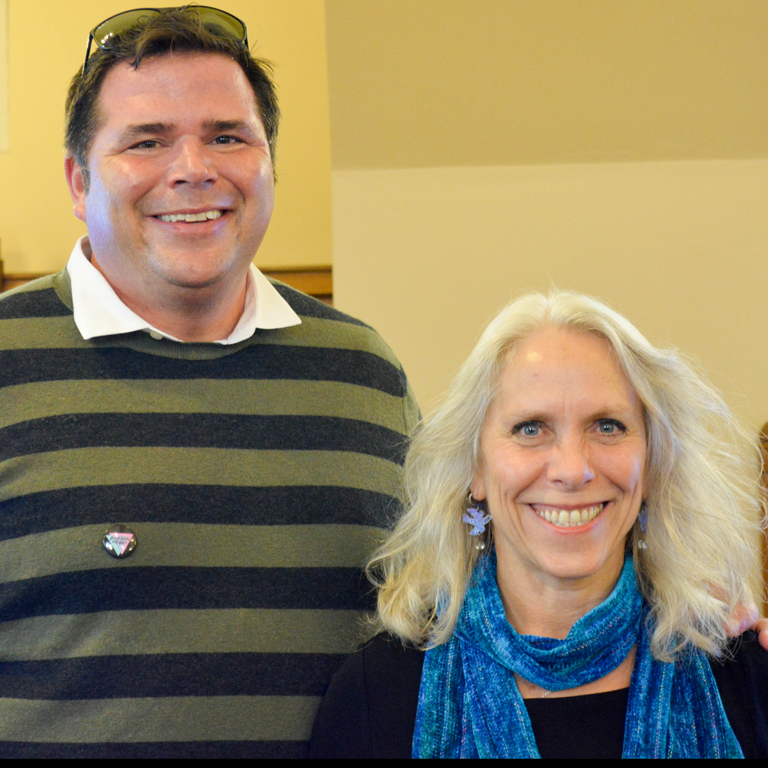It’s fitting that at the university where Professor Alfred Kinsey came to prominence, an effort to shed light on aspects of human sexuality continues to be a priority. Last Thursday afternoon at Woodburn Hall, Robyn Ochs spoke to the IU Bloomington community about the health disparities faced by bisexual men and women in a presentation entitled “Beyond Binaries: Using Advocacy for Health in Bisexual Communities.”
“It’s such a pleasure to be back at IU. It’s been several years—I believe this is my third visit—and every single time I’ve been here, I’ve had an excellent experience,” said the energetic, vivacious Ochs, a renowned speaker, educator, and award-winning activist. “This school has a lot of thoughtful students.”
Ochs was invited to campus by Dr. Brian Dodge, associate director, Center for Sexual Health Promotion at the School of Public Health, which sponsored the event with the GLBT Student Support Services Office, a program within the Office of the Vice President for Diversity, Equity, and Multicultural Affairs (OVPDEMA).
“Robyn is a veteran community advocate and over the past year, we’ve been taking part in a series of meetings at the White House to discuss the dramatic health disparities among groups of bisexual men and women, relative to both heterosexual and gay and lesbian people,” said Dodge. “Between physical health, mental health, poverty, and violence between partners, the rates are just significantly higher among bisexual people, so the effort was started by the White House to make this community more visible and also to start policy recommendations and other activities that can help alleviate these disparities.
“I think these efforts have been great because they link academic people with community people and people who are in federal agencies who have the ability to put some of these issues on the map. I think it’s a matter of helping people understand sexuality, and that’s part of what Robyn does,” Dodge continued. “There’s this dominant discussion of sexual identity that makes it binary—you’re gay or straight, black and white—and it isn’t reflective of the reality. This event is an opportunity to think about some of these issues when we don’t have a lot of space to do that in everyday life. I think it’s about having broader conversations about tolerance, diversity, and recognizing that there’s a wider range of people in the world.”
Doug Bauder, director of the GLBT Student Support Services Office, concurred with Dodge’s assessment.
“Sexuality—and gender identity, for that matter—is just more fluid, I think, than we’ve ever acknowledged. Over the years, we have not given a lot of credence or thought to what it means to be attracted to more than one gender,” he said. “Robyn speaks plainly and simply to the reality of that as no one I’ve ever heard before, so I think what she has to say is important. People’s identity related to their sexuality is really very personal. We need to listen to people’s stories and recognize that, ‘That’s a little different than my experience.’ I think that’s the significance of an area we haven’t looked at that much. This campus is a place we should be talking about it, and it’s probably long overdue.”
“This program is another example of how folks seek out our support. I think people understand that we have the ear of many students,” Bauder added. “I appreciate that Brian turned to our office and asked us to be a co-sponsor. As the years go on, we don’t initiate all the programs about sexuality or gender identity, but people ask to use our office as a sounding board or jumping-off point.”


